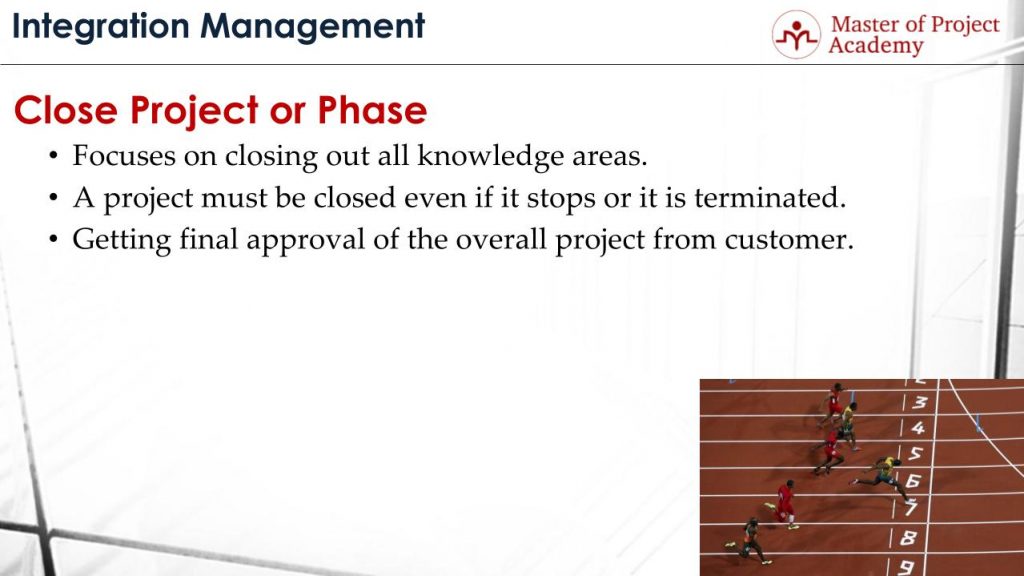Project integration management is an important project management knowledge area and it puts all the pieces of a project together into a cohesive whole. It has six processes and the last one is the close project or phase process.
As defined in the PMP project management training, the project integration management processes are:
- Develop Project Charter (Initiating)
- Develop Project Management Plan (Planning)
- Direct and Manage Project Work (Executing)
- Monitor and Control Project Work (Monitoring & Controlling)
- Perform Integrated Change Control (Monitoring & Controlling)
- Close Project or Phase (Closing)
Attend our 100% Online & Self-Paced One-Hour Free PMP Training.
Note that, project management processes are documented and controlled with the help of project management templates. You can see sample free project management templates to have an idea of how they work.
As you notice, all these six processes belong to different project management process groups. You can find detailed information about project management processes in the online CAPM training and also in the online PMP training. Now let’s learn about the final process of integration management: the close project or phase process.

What is it?
Close project is the last process of integration management knowledge area. It belongs to the project closing process group. This process aims to officially finalize a project in an organization.
The close project focuses on closing out all project management knowledge areas. Because there are several processes and activities that are executed in all other knowledge areas. Close Project or phase process will ensure successful completion of these activities and processes as well. The main purpose of the close project process is to collect all project documents, get final acceptance, archive documents, and finalize the project officially.
What triggers this process?
There may be three reasons to trigger the project closure:
- Project phase completion. If the project has several phases, there must be a close phase process for the closure of each phase.
- Project completion: When the project is completed successfully the close project process should be implemented.
- Project termination: Even if the project is terminated, a close project process should be implemented.
Let’s review why this process should be implemented even if a project stops or it is terminated. Projects can be terminated if it is seen that the project objectives are no longer valid, or project objectives will not be met. Even if it is the termination, project closure must be done appropriately. Why the project is terminated, reasons for termination, last status of the project, last performance of the project, latest project documents, etc. must be collected and archived in the organizational process assets library. This is crucial because when a similar project will be initiated, records of this project can be checked to get the lessons learned from the termination.

How to perform a close project process?
The last important thing to list here is Getting final approval of the overall project from the customer. A project can be closed only if the customer approves the final product of the project. Therefore, official approval from the customer must be acquired during this process. This can be a sign-off, written approval, an email stating the acceptance, etc. Once the approval is acquired, project documents are collected, archived, and the project is finalized.
Project closure is the last phase of the project life cycle, and it is as important as the other processes. Because if a project is closed appropriately, the knowledge obtained from that particular project will be used the future projects of the organization.


